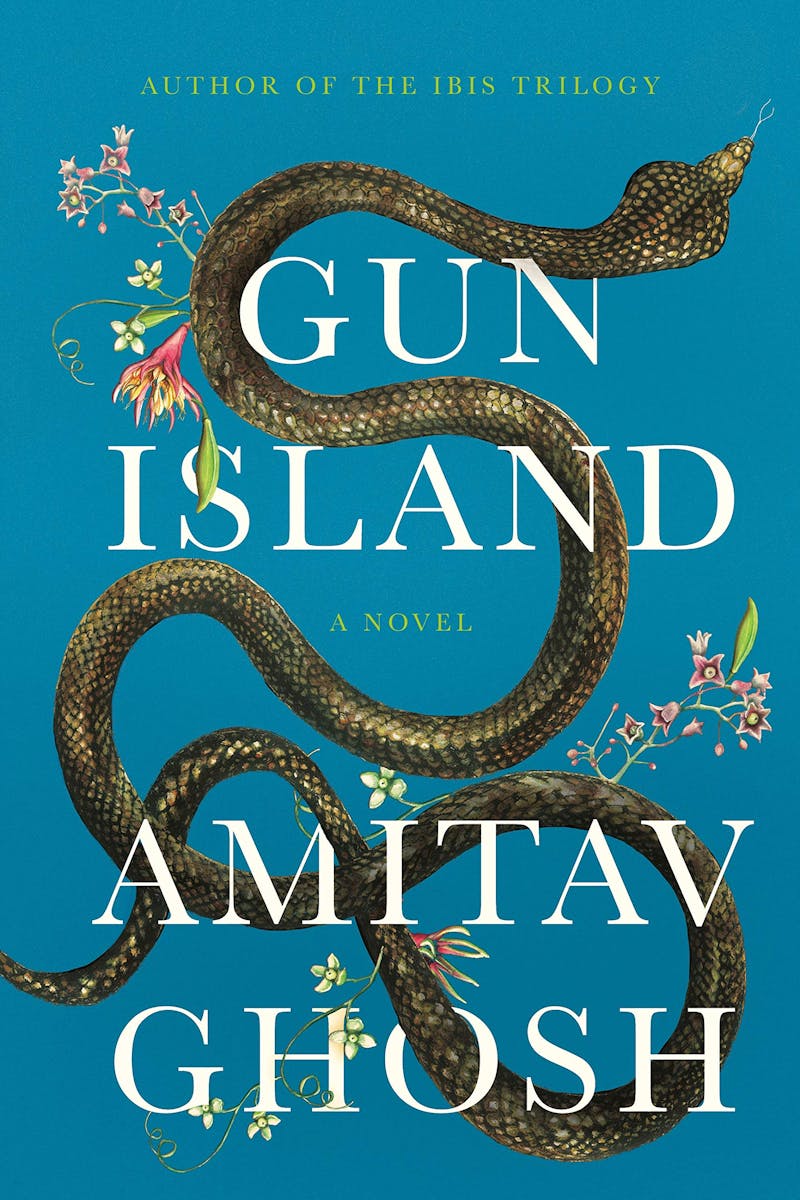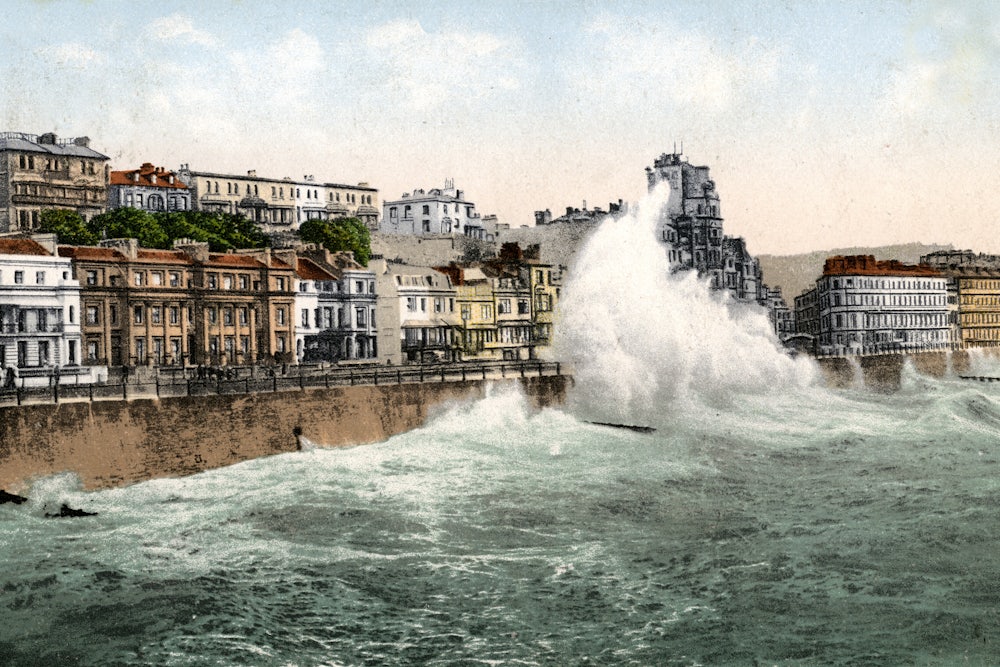In the summer of 2016, the Indian novelist Amitav Ghosh published The Great Derangement, a book-length essay on climate change. The title was an indictment of his vocation. Ghosh argued that there were no “serious” fictions on climate change because the modern novel had historically found its audience after the Industrial Revolution. Novels abolished the power that unpredictable events had held in epics, fables, and other, older forms of storytelling. Unpredictable events are fewer and farther between in novels, and invariably foreshadowed by an artful arrangement of details. Most contemporary novels, according to Ghosh, privilege the individual over society in a manner that is essentially conservative. The bleakest of stories still partake in the optimism that life will go on in spite of everything. At its simplest, the inevitability of climate change is a threat to this fragile faith in life. And to the extent that there will be future generations, Ghosh felt they would have good reason to think that “ours was a time when most forms of art and literature were drawn into the modes of concealment that prevented people from recognizing the realities of their plight.”

Ghosh’s provocation was surprising, once you got past the obvious irony. This wasn’t just another novelist (Knausgaard, Cusk, Sheila Heti) disenchanted with the novel for being “fake.” Ghosh wanted novelists to be, in a sense, more ruthless: to imagine more disasters and calamities. In his own fiction, Ghosh has never shied away from this: His 2004 novel, The Hungry Tide, was set in the dwindling Sundarbans delta of Bangladesh and eastern India; his Ibis trilogy explored the severe ways in which the 19th-century opium wars had shaped the histories of China and the Indian subcontinent. But The Great Derangement hinted at something less subtle. Faced with the impact of global warming and rising sea levels, the novelist would have to rethink what realism would encompass. Would he even have any use for realism? What would a novel that discarded all “modes of concealment” look like?
Gun Island is that novel. The narrator is a Brooklyn-based “antiquarian book dealer”, Deen, or Dinanath Datta. On a trip back home to Calcutta, Deen is persuaded to visit a shrine associated with a local legend in the nearby Sundarbans. The legend is of a vengeful goddess of snakes, feared by both Hindus and Muslims in the area, shadowing a medieval figure called The Gun Merchant. This merchant was indiscriminately punished by the goddess for refusing to believe in her powers. His boats were ruined in a storm at sea; his family was pursued by snakes and famines. He was forced to escape alone overseas and seek shelter in a mythical “Gun Island”—“an island within an island”—a place reputed to have no serpents. But the goddess still found a way to catch up. Later, the merchant promised to return home and build a shrine to the goddess in the Sundarbans. Only then did his luck start to change.
In a literal reprise of the merchant’s story, Deen finds himself pursued by snakes all over the world. During his visit to the shrine, he is nearly bitten by a king cobra. In a plane from New York to Los Angeles, he is detained by a security agent for screaming “Snake!” on board. In the Cannaregio district of Venice—another “island within an island”—he is swarmed by slithering shipworms that are apparently chipping away at all the woodwork in the city. He witnesses a friend’s dog being bitten by a snake. Catastrophes punctuate the narrative at every crossing. During an expedition in the Sundarbans, Deen sees river dolphins washing up dead on the shore. In Los Angeles, a conference has to be moved to a different venue because of wildfires. The canals of Venice regularly spill over into its streets: The city is sinking inch by inch. Bad dreams, divinations, accidents, shamans, angels and ghosts—Ghosh is willing to pursue all means to make his quarrel with realism explicit. At one point, Deen is reflecting on his incredible encounter with Rafi, a boy he had first met near the shrine at Sundarbans, now an undocumented worker in Venice:
…all of this was pure coincidence, of course it was. To lose sight of that was to risk becoming untethered from reality … There was absolutely no reason to imagine, as I had done, that such an encounter, in such a place, was outside the range of the probable. Because no such thing existed; nothing was outside the range of the probable.
This might as well have been a passage in The Great Derangement.
Fiction and polemic, despite their differences, are both products of pure passion. They both stake claim to the truth in their separate ways, and are considered successful if they persuade. Novels don’t have a monopoly on telling stories. The Great Derangement is convincing in part because of the stories Ghosh includes to bolster his thesis. Ghosh recounts his experience as a graduate student in New Delhi, caught in the middle of a “very, very rare” tornado; he then shows us Ghosh the novelist, struggling to write a scene with a tornado years later. He tells the story of asking his mother to move out of their family home in Calcutta because parts of the city are at risk of submersion in the coming decades. The tragedy of being alive in a warming world is summed up by his mother’s response: “She looked at me as though I had lost my mind.”
In Gun Island, Ghosh doesn’t attempt to convince anyone. Extreme events just keep happening. Must an announcement of raging wildfires be made at the exact moment that a climate-change-denier is delivering his spiel? Does a character need to have fitful visions of the future after a snakebite? Ghosh is often unsure of the direction in which to steer the novel. Deen is sometimes a busy sleuth, trying to connect the friezes he has seen in the shrine at the Sundarbans with what he learns in Venice and Los Angeles. On other occasions, he is a character in a horror film, replete with miracles and prophecies and voices of the dead. The situation is not helped by the presence of two stock characters: Cinta, the historian, and Piya, the marine biologist. Both women seem no more than vessels for Ghosh to fit in the research he has clearly done in their respective fields. Their scenes with Deen are mostly structured as infomercials: paragraphs of technical information broken up by silly questions like “What do you mean?” “Why?”
All of this makes Gun Island not just a disappointing story, but also a weak polemic. The clarity of The Great Derangement has given way to a confused outburst. If there is a case to be made against industrial modernity, it cannot be made by Deen, whose perpetual astonishment seems more improbable than any environmental disaster portrayed in the novel. One moment he is desolate about the future of young people living in the remote Sundarbans, how they can never “compete with city folk with their tuition centers and access to the internet.” But a few pages later, he is informing us that young Indians “had an ability to deal with phones and computers … completely disproportionate to their material circumstances and formal education.” Characters are silenced by a “beseeching glance” and look tearfully out of the window when they are sad. Their emotional earnestness can seem like another mode of concealment. I thought of James Baldwin’s definition of sentimentality: “the mark of dishonesty, the inability to feel.”
That Ghosh shares this inability to feel becomes apparent on a re-reading of The Great Derangement. There, within the first few pages, you find the sentences that must have been the germ of the novel:
Can anyone write about Venice anymore without mentioning the aqua alta, when the waters of the lagoon swamp the city’s streets and courtyards? Nor can they ignore the relationship that this has with the fact that one of the languages most frequently heard in Venice is Bengali: the men who run the quaint little vegetable stalls and bake the pizzas and even play the accordion are largely Bangladeshi, many of them displaced by the same phenomenon that now threatens their adopted city—sea-level rise.
How different Gun Island could have been if it had lingered on Rafi’s predicament, his fate of being at the mercy of sudden floods everywhere. Instead his remarkable journey from the Sundarbans to Venice is wrapped up in a single chapter towards the end. He is no more than a footnote to Deen’s obsession with the Gun Merchant.
Ghosh has said in interviews that his project is different, that he intends to move away from the modern novel’s emphasis on style and observation, its cherishing of everyday details and emotional nuances after Flaubert. He has expressed his interest in reviving the delight that myths and legends take in relaying one unlikely event after another, their act of “giving voice to the non-human.” In the novel this is indicated by repeated references to a “Little Ice Age” in the seventeenth century when climate disruptions briefly plunged the world into chaos. Deen is unable to finish reading Henry James’s The Aspern Papers, a novel set in nineteenth-century Venice, because it has nothing in common with the Venice of today. He feels that the spirit of the city now is closer to that of the seventeenth century—“another era when unaccustomed forces were churning the earth.” But for a seventeenth century literary form to work, it must be adapted to the ways in which our world has transformed since then. Ghosh skips the necessary system update. Women are all simple and virtuous in Gun Island. India is again a land of gods and snakes. Refugees are distinguished mainly by their suffering, while the villains—human traffickers, white nationalists—are damned by sudden death or defeat. It is almost as if we have returned to a time of medieval morality.
Ghosh’s recourse to myth can also feel like a withdrawal from the world. It prevents him from paying closer attention to his art. He seems not to realize that “giving voice to the non-human” might mean something other than Deen being haunted by “unaccustomed forces” or Piya’s Free Willy-like attachment to a river dolphin. His prose—“I gaped at him, dumbfounded”; “She gave me one of her heart-stopping smiles”—is strewn with clichés. Yet a reckoning with the reality of our changing earth must also come to terms with the exigencies of language. If novels are to convey the likelihood of more catastrophic events, the reader has to first feel the pressure on the level of the sentence. Contemporary writers are faced with a problem not unlike the one their modernist counterparts faced at the turn of the twentieth century: They, too, have to “make it new” again.
As a creative endeavor, Gun Island just doesn’t dare enough. Ghosh appears to shrink from its imaginative possibilities. There is a moment when Cinta, the historian, chides Deen for thinking that the legend of the Gun Merchant is “just a story.” Stories, she tells him, have hidden meanings: “Only through stories can invisible or inarticulate or silent beings speak to us; it is they who allow the past to reach out to us.” Ghosh, as a conscientious citizen of this beleaguered planet, always has his ear to the ground for stories. But Ghosh, the novelist, isn’t listening.
